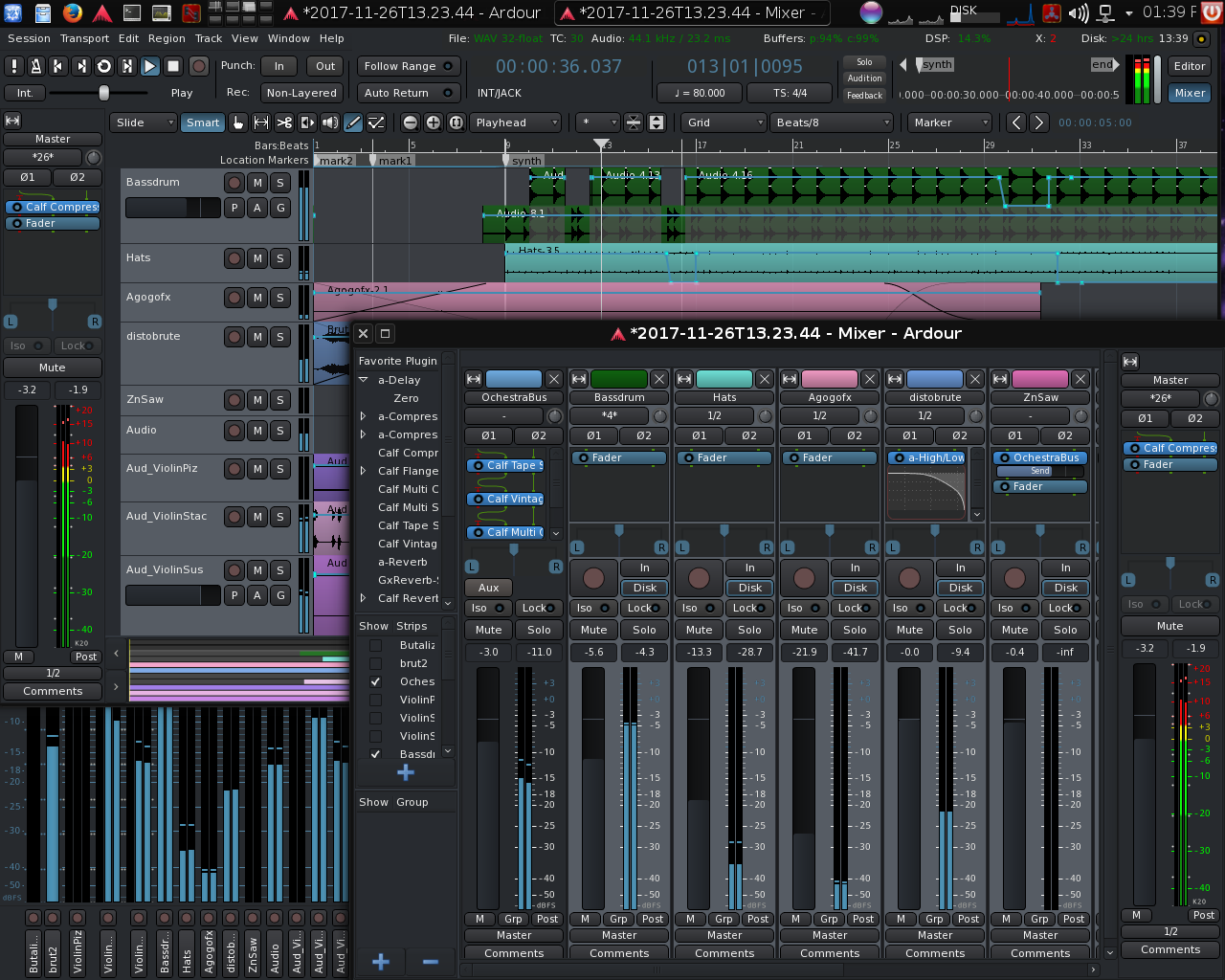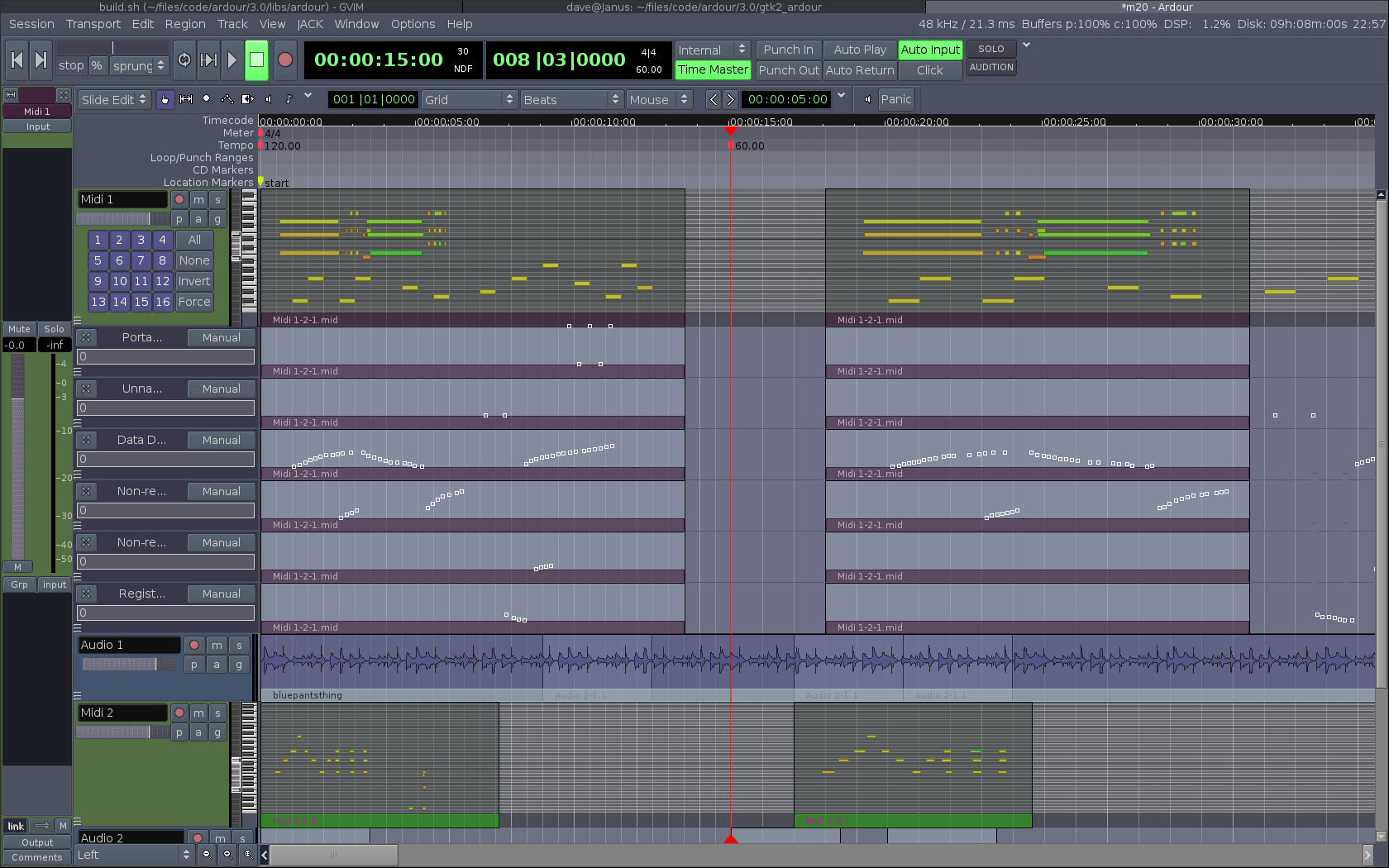

Playlists : a list of playlists that are used in the session.Regions : a list of the regions (segments of an audio or MIDI file) used in the session.Sources : a list of the audio and MIDI files that are used in this session.Metadata : the metadata information for the session ( personnel details, etc ).

Config : defines the Session Properties that were chosen for this session.Other workstations that use this format include Ardour and Waves Tracks Live.Ī detailed description of the session format is beyond the scope of this manual, but here is an overview of a session file contents: These files are plain human-readable XML. Mixbus session files use the industry-standard “Ardour” session file format. Some plugins (such as impulse-response based reverbs) need to store more information than is practical in the session XML file. It is safe to delete the contents of this folder, and Mixbus will create new data when the session is re-opened. peaks: Contains waveform images for display in the editor.interchange: This folder contains imported audio, recorded audio, and MIDI files.externals: This folder contains a list of external files that are used in the session, but were not copied into the session.export: This is the default location for exported files.Menu>Session>Clean-up>Flush Wastebasket: will delete audio files located in this folder. dead: This folder serves as a waste basket for unused audio.By storing this information, Mixbus doesn’t have to re-analyze audio when you initiate one of these functions. analysis: This folder contains data relevant to any audio files that Mixbus has analyzed for transient-detection and note-detection.The history file saves the UNDO history for that snapshot. history : every snapshot file has a “history” file. instant.xml : this file stores the most recently-used mouse mode, playhead location, and other transitory information.
#ARDOUR LINUX MANUAL PDF SERIES#
Navigating to a session folder will display a series of files and folders:

Mackie MCU-compatible fader controllers.Scrolling and Zooming in the Editor Window.Operational Differences from Other DAWs.
#ARDOUR LINUX MANUAL PDF PDF#
#ARDOUR LINUX MANUAL PDF LICENSE#
Qtractor is free, open-source software, distributed under the terms of the GNU General Public License (GPL) version 2 or later.įeatures * Multi-track audio and MIDI sequencing and recording. Target platform is Linux, where the Jack Audio Connection Kit (JACK) for audio, and the Advanced Linux Sound Architecture (ALSA) for MIDI, are the main infrastructures to evolve as a fairly-featured Linux desktop audio workstation GUI, specially dedicated to the personal home-studio. Qtractor is an Audio/MIDI multi-track sequencer application written in C++ with the Qt4 framework. Rosegarden també suporta audio i MIDI, però dins la LAU sembla ser que hi ha un consens de què és millor Qtractor que no pas Rosegarden.Ī efectes pràctics, potser la principal diferència entre Qtractor i Ardour (quan suporti MIDI, v3), és que Qtractor és QT4 i Ardour és GTK. Ardour en la versió 2 no suporta pistes MIDI (no és seqüenciador), però sí que ho farà en la propera versió 3. Qtractor seria equivalent a Rosegarden (seqüenciador) i Ardour (DAW).


 0 kommentar(er)
0 kommentar(er)
